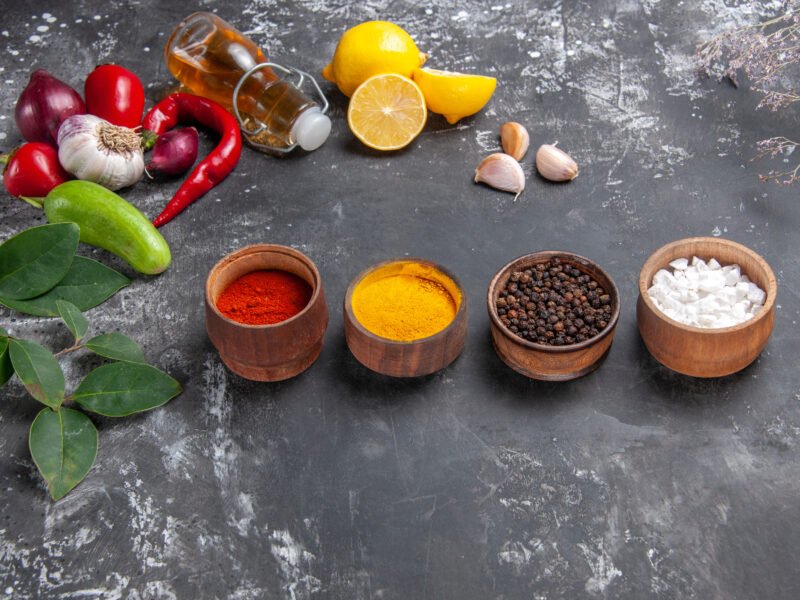Having a low appetite can be frustrating and detrimental to one’s health, making it challenging to obtain the nutrients one needs to function optimally.
Fortunately, natural appetite stimulants offer a safe and effective way to boost hunger without relying on pharmaceutical solutions. This guide explores various natural methods and foods that can help increase appetite.
We will provide you with knowledge about the range of options that can naturally stimulate your appetite, from incorporating certain herbs and spices known for their appetite-enhancing properties to adjusting meal patterns that encourage more regular food intake.
Whether recovering from an illness, dealing with stress, or simply finding it hard to eat enough during the day, understanding how to increase your appetite naturally can make a significant difference in your overall health and well-being.
Fortunately, natural appetite stimulants offer a safe and effective way to boost hunger without relying on pharmaceutical solutions. This guide explores various natural methods and foods that can help increase appetite.
We will provide you with knowledge about the range of options that can naturally stimulate your appetite, from incorporating certain herbs and spices known for their appetite-enhancing properties to adjusting meal patterns that encourage more regular food intake.
Whether recovering from an illness, dealing with stress, or simply finding it hard to eat enough during the day, understanding how to increase your appetite naturally can make a significant difference in your overall health and well-being.
How To Get Hungry Naturally?
If you’re looking to increase your hunger naturally, here are several strategies that can help stimulate your appetite:
Regular Exercise:
Physical activity can boost metabolism and increase the need for calories, enhancing your hunger. Even light activities such as walking or gentle yoga can be practical.Eat Small, Frequent Meals:
Instead of three large meals, try eating smaller, more frequent meals throughout the day. This can help maintain a constant level of nutrients, encouraging regular hunger signals.Enhance Food Flavor:
Using a variety of herbs, spices, and seasonings can make food more appealing and stimulate your appetite. Tasty food is more enticing and can make you look forward to meals.Stay Hydrated:
Sometimes, dehydration is mistaken for lack of hunger. Ensure you drink enough water throughout the day, as it’s essential for proper bodily functions, including digestion.Create Enjoyable Eating Experiences:
Eating in a pleasant, stress-free environment can enhance your eating experience. Make mealtime more enjoyable by eating with others or setting a lovely table.Avoid Liquids Before Meals:
Drinking large amounts of fluids before meals can fill you up and reduce your appetite. Drinking fluids after or between meals is better to preserve your hunger.Stimulate Your Senses:
Seeing and smelling food can trigger the release of digestive juices, enhancing your appetite. Cooking at home or watching cooking shows might stimulate your desire to eat.Manage Stress:
High stress levels can suppress one’s appetite. Stress-reduction activities like meditation, deep breathing exercises, or hobbies can help maintain a healthy appetite.What Is The Most Powerful Appetite Stimulant?

One of the most powerful natural appetite stimulants is ginger. Ginger is renowned for its ability to enhance appetite and numerous other health benefits, such as alleviating nausea and improving digestive health. It stimulates digestive enzymes, makes digestion more efficient, and increases hunger signals.
In clinical settings, appetite stimulants like megestrol acetate and mirtazapine are often used for patients who need to increase their appetite due to medical conditions like cancer or to combat anorexia in elderly populations. These pharmacological options are among the most potent appetite stimulants, prescribed when natural remedies and dietary changes are insufficient.
In clinical settings, appetite stimulants like megestrol acetate and mirtazapine are often used for patients who need to increase their appetite due to medical conditions like cancer or to combat anorexia in elderly populations. These pharmacological options are among the most potent appetite stimulants, prescribed when natural remedies and dietary changes are insufficient.
Which Foods Increase Appetite?
Certain foods naturally stimulate appetite, making them helpful in increasing food intake. Here are some of the essential foods that can help boost hunger:
Ginger:
Known for stimulating the digestive system, ginger can help increase appetite by promoting the secretion of digestive enzymes.Peppermint:
Often used in teas and as a flavor enhancer, peppermint is refreshing and can help stimulate hunger by relaxing the digestive tract and promoting digestion.Complex Carbohydrates:
Foods like whole grains, oats, and brown rice release energy slowly, which helps maintain stable blood sugar levels and promotes a consistent appetite.Fatty Foods:
Foods high in healthy fats, such as avocados, nuts, seeds, and olive oil, can stimulate the release of hormones that increase hunger.Protein-Rich Foods:
Including lean meats, fish, eggs, and legumes in your diet can stimulate the production of ghrelin, a hormone that enhances appetite.Spicy Foods:
Capsaicin, the compound that makes chili peppers hot, can increase metabolism and stimulate the release of hormones that promote hunger.Fruits:
Certain fruits, such as apples, oranges, and pears, have high fiber and water content, which can initially fill you up but also increase overall digestive efficiency, leading to improved appetite.Yogurt:
The probiotics in yogurt can improve gut health, which is linked to better digestion and potentially an increased appetite.Which Fruit Gives Appetite?
Certain fruits are particularly effective at stimulating appetite due to their unique nutritional properties and digestive benefits. For instance, pineapple contains bromelain, an enzyme that aids in protein digestion, which can help enhance digestive health and subsequently stimulate appetite. Apples high in dietary fiber regulate the digestive system and improve gut health over time, potentially leading to increased hunger.
Grapes, with their rich organic acid and sugar content, provide a quick energy boost that can trigger hunger, making them an excellent snack before meals. Additionally, papaya features the enzyme papain, similar to bromelain, which assists in breaking down proteins and promotes a healthier digestive tract. Including these fruits in your diet can be a natural way to boost your appetite, especially if consumed before meals or as a balanced snack.
Grapes, with their rich organic acid and sugar content, provide a quick energy boost that can trigger hunger, making them an excellent snack before meals. Additionally, papaya features the enzyme papain, similar to bromelain, which assists in breaking down proteins and promotes a healthier digestive tract. Including these fruits in your diet can be a natural way to boost your appetite, especially if consumed before meals or as a balanced snack.
Conclusion: Does Vitamin B12 Increase Appetite?
Naturally stimulating your appetite involves dietary changes, physical activity, and stress management. Regular exercise boosts metabolism and calorie needs, enhancing hunger. Small, frequent meals help maintain nutrient levels, increasing hunger signals. Flavorful food and enjoyable eating environments also stimulate appetite. Staying hydrated and managing stress are crucial for maintaining health and appetite.
Ginger, peppermint, complex carbohydrates, and proteins enhance digestive health or stimulate hunger hormones. Fruits like pineapple, apples, grapes, and papaya offer digestive benefits and boosts appetite, especially before meals.
While these natural methods are effective for many, stronger interventions like megestrol acetate and mirtazapine are available for medical conditions affecting appetite.
Vitamin B12 is essential for health but is not directly linked to increased appetite. However, correcting a B12 deficiency can indirectly restore appetite by alleviating anemia symptoms.
These strategies highlight the significant impact of diet and lifestyle on bodily functions and overall health.
Ginger, peppermint, complex carbohydrates, and proteins enhance digestive health or stimulate hunger hormones. Fruits like pineapple, apples, grapes, and papaya offer digestive benefits and boosts appetite, especially before meals.
While these natural methods are effective for many, stronger interventions like megestrol acetate and mirtazapine are available for medical conditions affecting appetite.
Vitamin B12 is essential for health but is not directly linked to increased appetite. However, correcting a B12 deficiency can indirectly restore appetite by alleviating anemia symptoms.
These strategies highlight the significant impact of diet and lifestyle on bodily functions and overall health.





